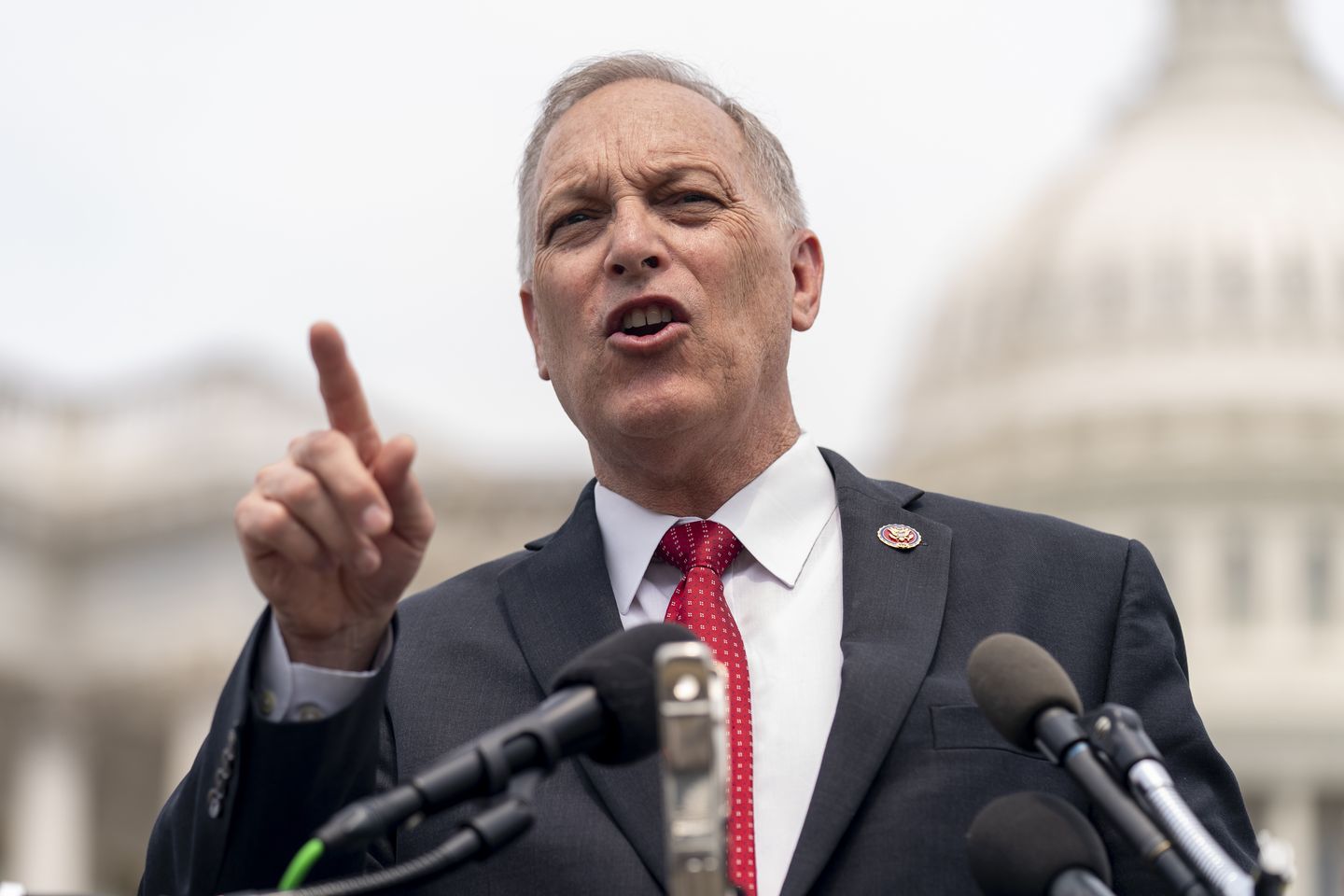

While President Biden faces criticism over who was left in Afghanistan, there are growing questions about who was evacuated — and House Freedom Caucus Chairman Andy Biggs is demanding answers.
In a letter to Homeland Security Secretary Alejandro Mayorkas, Mr. Biggs, Arizona Republican, pointed to reports of suspicious people who were airlifted on U.S. evacuation flights, including 20,000 who have reached American soil and more than 40,000 others waiting at U.S. bases overseas.
Mr. Biggs said it’s time the government divulge whether it collected fingerprints from every person brought to the U.S. under Mr. Mayorkas’s parole powers. He also asked for a full explanation of how the government vetted people as they were rushing to board airplanes to flee Afghanistan.
And Mr. Biggs demanded to know how Mr. Mayorkas’ department is monitoring the 20,000 Afghans already on U.S. soil, and what will happen to those brought here but later judged to be security risks.
“We have all watched the chaotic evacuation scenes play out in Afghanistan. It has raised serious questions on who is being brought into our country,” the congressman told The Washington Times. “We need to ensure that these individuals are being properly vetted and do not pose a risk to our communities. American safety must be prioritized.”
He cited reporting by The Washington Times on a 47-year-old Afghan citizen who made it to the U.S. on an evacuation flight despite having a prior rape conviction and deportation on his record. And he cited multiple news reports that authorities have matched as many as 100 evacuated Afghans to government watch lists.
“These reports are extremely troubling,” Mr. Biggs and colleagues wrote in the letter, sent Thursday and signed by 31 other GOP lawmakers.
They gave Mr. Mayorkas a Sept. 10 deadline for responding.
Details on the airlift operations have been hard to come by, though Pentagon officials this week said they were holding 20,000 evacuated Afghans at eight bases in the U.S., and 43,000 more at bases overseas.
The airlift was billed as a chance to help Afghans who assisted the U.S. war effort, such as translators or guides. There is a program just for them, known as the Special Immigrant Visa (SIV). But the government has reportedly acknowledged that it stranded a majority of those folks in Afghanistan.
That has spawned new questions about who was brought out.
Almost all of those who reached the U.S appear to have been admitted under Mr. Mayorkas’ humanitarian parole power, which is supposed to be exercised on a case-by-case basis for exceptional humanitarian reasons or when it’s in the national interest.
Some were likely in the process of obtaining the SIV, and parole gives them a chance to complete that process. But a majority were not in the special visa pipeline, according to members of Congress.
They must try to seek another legal status.
They are no longer able to apply for refugee status, but could apply for asylum.
The State Department said it was processing a thousand SIV applications a week at the end of the airlift, but acknowledged it had expected the Afghan government to hold out longer and allow more time for people to be vetted.
